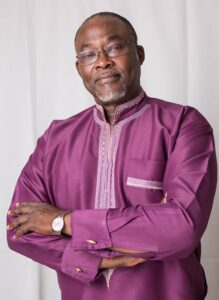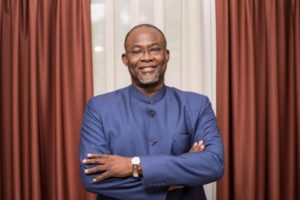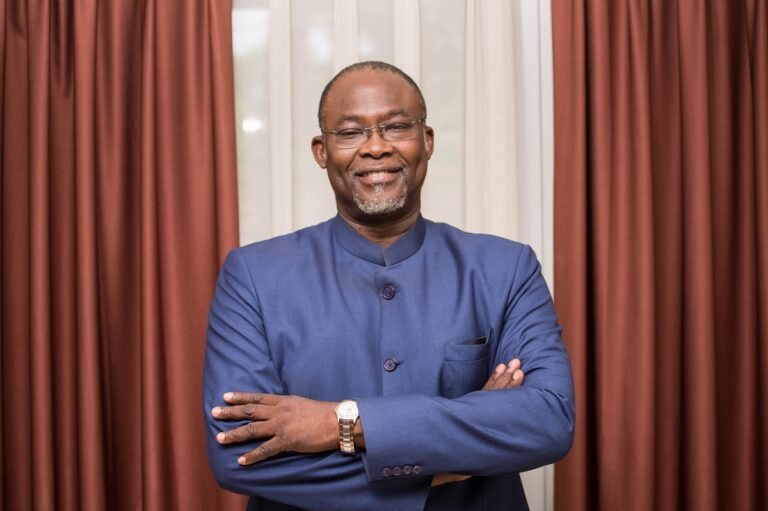President John Dramani Mahama has appointed Dr. Ekwow Spio-Garbrah as Ghana’s Special Envoy for Reparations, signalling a renewed commitment by Ghana to the global campaign for reparative justice tied to the trans-Atlantic slave trade and colonial exploitation.
Dr. Spio-Garbrah, a seasoned diplomat and public servant, will lead Ghana’s efforts to coordinate with African governments, diaspora organisations, and international partners in advancing frameworks for restitution, investment, capacity building and recognition of historical injustices. His prior roles include Ghana’s Ambassador to the United States, Minister of Trade and Industry and Minister of Education, equipping him with the credentials to engage at high-level policy forums and negotiations.
In announcing the appointment the presidency described it as both strategic and symbolic — affirming Ghana’s historical leadership in pan-African affairs and its ambition to shift the reparations debate from rhetoric into actionable policy.
Observers interpret the move as Ghana seizing a leadership role in the evolving global discourse on reparations. With several Caribbean and African nations pressing former colonial powers and private institutions for restitution, Ghana’s appointment of a dedicated envoy positions it to coordinate regional responses, mobilise diplomatic advocacy and negotiate frameworks for economic and technological cooperation. Reaction among civil society, academic and diaspora groups has been broadly positive. One Ghana-based pan-African think-tank welcomed the decision as “well-timed and strategically sound,” though it added that effectiveness will depend on measurable outcomes and transparent implementation.

Historically Ghana has held a symbolic role in Pan-African leadership, being the first sub-Saharan African country to gain independence in 1957 and the site of the famed 1958 All-Africa Peoples’ Conference in Accra. Over the decades Ghana has also hosted diasporic initiatives, cultural programmes and served as home for the African Continental Free Trade Area secretariat. By taking a formal posture on reparations, Ghana may be seeking to leverage this heritage and its diplomatic networks to deliver tangible benefits for the continent.
Dr. Spio-Garbrah’s appointment arrives at a time when the reparations agenda is gaining momentum. Several nations and supranational organisations are exploring how historical exploitation links to development deficits today, and how redress might encompass debt relief, technology transfer, climate adaptation financing, heritage preservation or direct compensation. Ghana’s envoy will likely be tasked with developing a national framework to guide discussions, aligning Ghana’s foreign-policy objectives with the broader African position at bodies such as the African Union, CARICOM and the United Nations.
Key expected responsibilities for the Special Envoy include mapping out Ghana’s reparations priorities, engaging diaspora networks for advocacy and investment, facilitating partnerships with multilateral institutions, tracking reparative initiatives globally, and reporting to Cabinet and Parliament on progress. Sources say he will also coordinate with the Ministry of Foreign Affairs, Ministry of Trade and Industry and Ghana’s diplomatic missions abroad to ensure coherence and leverage Ghana’s external engagements.
Despite the positive symbolism, the appointment also presents practical challenges. Defining what constitutes reparations remains contested — whether financial payments, debt relief, investment commitments or cultural recognition. Ghana will need to outline its metrics for success, ensure inclusive consultation with stakeholder groups, and avoid the perception of symbolic gestures without material outcomes. Some analysts note that in previous cases reparations debates have stalled due to lack of clarity, capacity constraints and competing policy priorities.

Nevertheless for Ghana the timing offers a strategic advantage. With the African Continental Free Trade Area (AfCFTA) in operation, Ghana is positioning itself as an investment gateway and diplomatic hub. Leveraging a reparations initiative could align with its economic diplomacy, providing opportunities for mobilising development finance, strengthening capacity-building mechanisms and attracting diaspora investment flows. Dr. Spio-Garbrah’s experience in trade, education and diplomacy may enable these links to translate into concrete programmes.
The appointment also holds symbolic resonance for Ghana’s domestic and diaspora audiences. For the Ghanaian diaspora, particularly those tracing ancestry to the slave trade, the envoy role offers hope of more structured engagement rather than ad hoc advocacy. For domestic stakeholders the move underscores Ghana’s intent to engage not just with past injustices but to connect historical redress with future growth strategies. Civil society groups tracking the issue have said they will monitor whether the envoy’s office produces a roadmap, engages affected communities, and ensures transparency.
In conclusion, Ghana’s decision to appoint Dr. Ekwow Spio-Garbrah as Special Envoy for Reparations marks a significant pivot in how the country engages with the legacy of slavery and colonialism. The success of the initiative will depend on clarity of purpose, alignment of policy and capacity for delivery. If managed effectively, Ghana could emerge not only as a convener of the reparations conversation but also as a pilot for how justice and development converge in the 21st century.
Mahama Nominates Justice Paul Baffoe-Bonnie as Ghana’s Next Chief Justice Amid Judicial Transition

